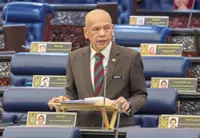PETALING JAYA: Despite concerns over slower global economic growth and impending US tariffs, economists say the government should proceed cautiously with the planned rollout of the RON95 targeted subsidy scheme.
Sunway University economics professor Dr Yeah Kim Leng said the current slump in global oil prices offers a more favourable window for the implementation, but urged caution given broader uncertainties.
Follow us on our official WhatsApp channel for breaking news alerts and key updates!
Thank you for your report!





